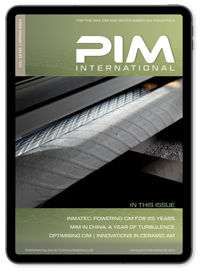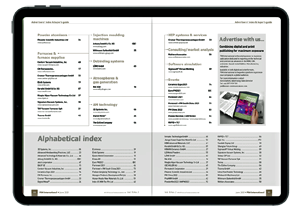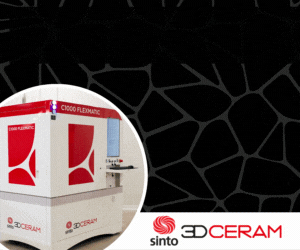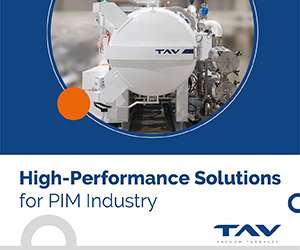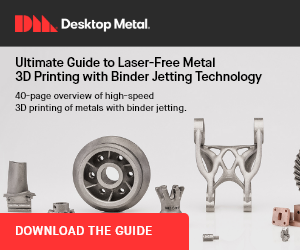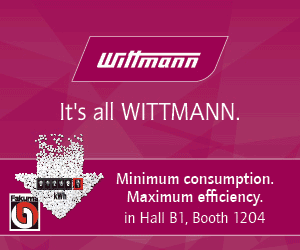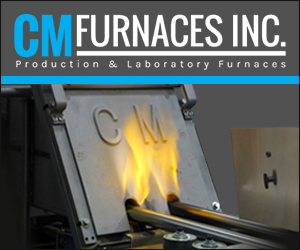Alstom collaborates with Replique for serial-production train part using AM
July 1, 2022
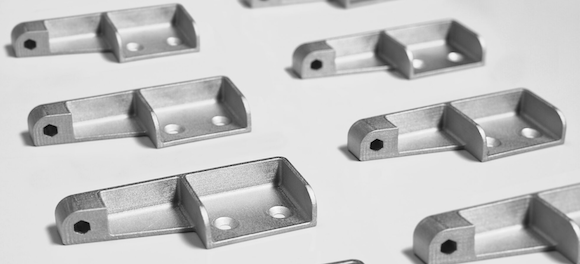
Mobility company Alstom, Mannhein, Germany, has utilised Replique’s on-demand Additive Manufacturing platform to produce a batch of customised, industrial-grade serial parts. By digitising its supply chain, Alstom states that it is now able to produce small batches on demand and decentrally.
Established in 2020 as part of BASF’s Digital Transformation initiative, Replique provides what it states is the first fully encrypted AM platform that makes spare part management more sustainable. By combining its digital inventory and a network of Additive Manufacturing professionals, it offers an end-to-end solution from qualification to production and shipment.
In train manufacturing, small batch sizes lead to high manufacturing costs due to the production of moulds and other tools. Additive Manufacturing can solve this challenge by eliminating fixed costs, resulting in parts that can be produced economically even in small quantities. Alstom explains that it has already taken advantage of the technology within the production of spare parts. Now, they can also fulfil specific customer needs using additive serial production.
Alstom operates globally, which means each train component has different requirements. They need a scalable solution for decentralised manufacturing in industrial-grade quality. Alstom works closely with Replique, leveraging the capabilities of an Additive Manufacturing network where all partners are carefully selected and qualified.
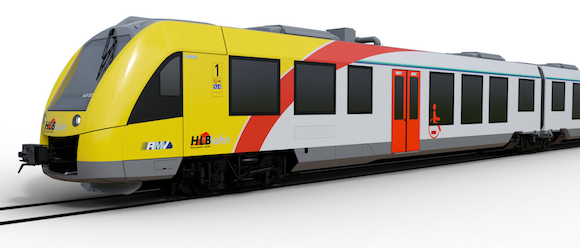
“The Additive Manufacturing market is still very fragmented, which makes it impossible for end-users to find an optimal solution for each part,” commented Ben Boese, 3D Printing Hub Manager at Alstom Transport Deutschland GmbH. “With Replique, we benefit from all major Additive Manufacturing technologies and materials from a single source. In addition, we receive optimal technological preparation.”
In order to meet a specific customer request, Alstom required several doorstoppers for a partition door that divides the passenger compartment of a diesel multiple unit into a first and second class. The small number of such components is usually an obstacle to initial production as well as project delays resulting in long delivery times. It is for this reason that Alstom selected Additive Manufacturing for the production.
Replique assisted Alstom with material and technology selection and was able to qualify and deliver the doorstopper for serial production within just one and a half months. During this process, the doorstopper went through the protocols of initial sample testing and assembly and received the final approval for series production.
“We were able to produce the doorstopper in a cost-neutral manner compared to conventional methods. Within the near future, we plan to further exploit the technology’s potential by creating topology-optimised designs of new parts, or even make them lighter by using reduced infill,” Boese added.
To enable on-demand production, careful qualification, including the selection of the right material, was crucial. The doorstopper not only had to fulfil its function over the entire service life of the train, but also meet high aesthetic standards, as a visible part inside the train compartment.
Stainless steel was chosen in order to meet these requirements. Using Fused Deposition Modelling (FDM), or Fused Filament Fabrication (FFF), a Material Extrusion (MEX) Additive Manufacturing process, with Ultrafuse® 316L from Forward AM, a brand of Replique’s material partner BASF 3D Printing Solutions, followed by debinding and sintering, Replique states that it was able to significantly reduce costs compared to other Additive Manufacturing processes.
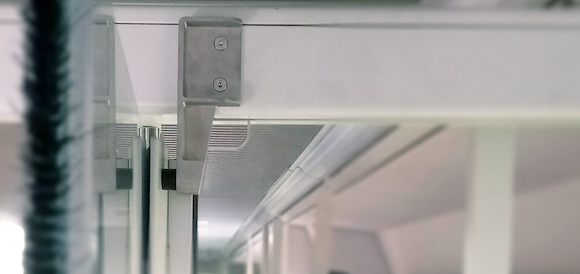
“Alstom has already shown in the past how 3D printing can be integrated in a lean and cost-efficient way. They are pioneers in Additive Manufacturing, and we look forward to supporting them on their journey to simplify and fully digitise their supply chain for all printable series and spare parts,” commented Dr Max Siebert, CEO and founder of Replique.
Boese added, “Additive Manufacturing is now a key part of our supply chain. With Replique, we benefit from 3D printing and materials expertise, as well as a decentralised manufacturing network covering all relevant locations and technologies. Their end-to-end services enable us to respond faster and more cost-effectively to different customer requirements.”





